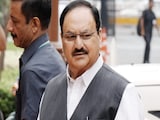A prosecutor urged jurors on Monday to convict the white former Minneapolis police officer accused of killing George Floyd, saying the death of the 46-year-old Black man, which was captured on video seen by millions around the world, was "murder" not policing.
"This case is exactly what you thought when you saw it first, when you saw that video," Steve Schleicher said in closing arguments at the trial of ex-policeman Derek Chauvin.
"You can believe your eyes," Schleicher said. "It's exactly what you knew, it's what you felt in your gut, it's what you now know in your heart."
Chauvin, 45, is charged with murder and manslaughter over Floyd's May 25, 2020 death, which sparked protests against racial injustice around the world and is being seen as a landmark test of police accountability.
Chauvin was captured on video kneeling on the neck of Floyd, who was pinned facedown handcuffed on the ground for more than nine minutes complaining "I can't breathe."
"This wasn't policing, this was murder," Schleicher said. "Nine minutes and 29 seconds of shocking abuse of authority.
"The defendant is guilty of all three counts. And there's no excuse."
Presenting his closing arguments, defense attorney Eric Nelson told the jury they need to look at Chauvin's actions "from the perspective of a reasonable police officer."
"He did not purposefully use unlawful force. These are officers doing their job," Nelson said. "You have to take into account that officers are human beings capable of making mistakes."
He defended the actions of Chauvin and the other officers who held Floyd down on the ground.
"This was not a neck restraint. This was not a choke hold," he said.
'Hold police officers accountable'
Nelson said Floyd's heart disease and drug use played a role in his death.
"They're trying to convince you that Mr. Floyd's heart disease played no role," he said.
"I'm not suggesting this was an overdose death," Nelson said, "but it is a preposterous notion to say that this did not come into play here."
Nelson urged the jury to find Chauvin not guilty. "The state has failed to prove its case beyond a reasonable doubt," he said
Schleicher, the prosecutor, said Chauvin violated training, did not follow the police department's use of force rules and did not perform CPR on Floyd.
"George Floyd was not a threat to anyone," Schleicher said. "He was not trying to hurt anyone."
Chauvin, a 19-year veteran of the Minneapolis Police Department, faces a maximum of 40 years in prison if convicted of the most serious charge -- second-degree murder.
Tensions were high as the jury was set to begin its deliberations, with National Guard troops deployed in the Minnesota city after Daunte Wright, a 20-year-old Black man, was shot dead in a Minneapolis suburb on April 11 by a white policewoman.
White House spokeswoman Jen Psaki was asked during her daily briefing about the level of preparedness ahead of the verdict.
"We are in touch with local authorities, we are in touch with states, with governors, with mayors," Psaki said. "We will continue to encourage peaceful protests, but we're not going to get ahead of the verdict."
Speaking ahead of closing arguments, Ben Crump, an attorney for the Floyd and Wright families, said "the outcome that we pray for in Derek Chauvin is for him to be held criminally liable for killing George Floyd."
"Killing unarmed Black people is unacceptable," Crump told ABC News on Sunday. "We have to send that message to the police. Hold police officers accountable."
Among the 38 witnesses who testified for the prosecution were some of the bystanders who watched Floyd's arrest for allegedly using a counterfeit $20 bill to buy a pack of cigarettes.
Darnella Frazier, the teenager who took the video that went viral, said Floyd was "scared" and "begging for his life."
"It wasn't right. He was suffering," Frazier said.
Chauvin, dressed in a light grey suit and dark blue shirt and blue tie, took off his face mask to listen to closing arguments.
Much of the evidence phase of the trial involved testimony from medical experts about Floyd's cause of death.
A retired forensic pathologist put on the stand by the defense said Floyd died of cardiac arrest brought on by heart disease and fentanyl and methamphetamine.
Medical experts called by the prosecution said Floyd died from hypoxia, or a lack of oxygen, from Chauvin's knee on his neck and that drugs were not a factor.
The defense called a retired police officer who said Chauvin's use of force against Floyd was "justified."
Police officers testifying for the prosecution -- including the city police chief -- said it was excessive and unnecessary.
A conviction on any of the charges -- second-degree murder, third-degree murder or manslaughter -- will require the jury to return a unanimous verdict.
Judge Peter Cahill has ordered the 12-member jury to be sequestered for deliberations.
(Except for the headline, this story has not been edited by NDTV staff and is published from a syndicated feed.)















